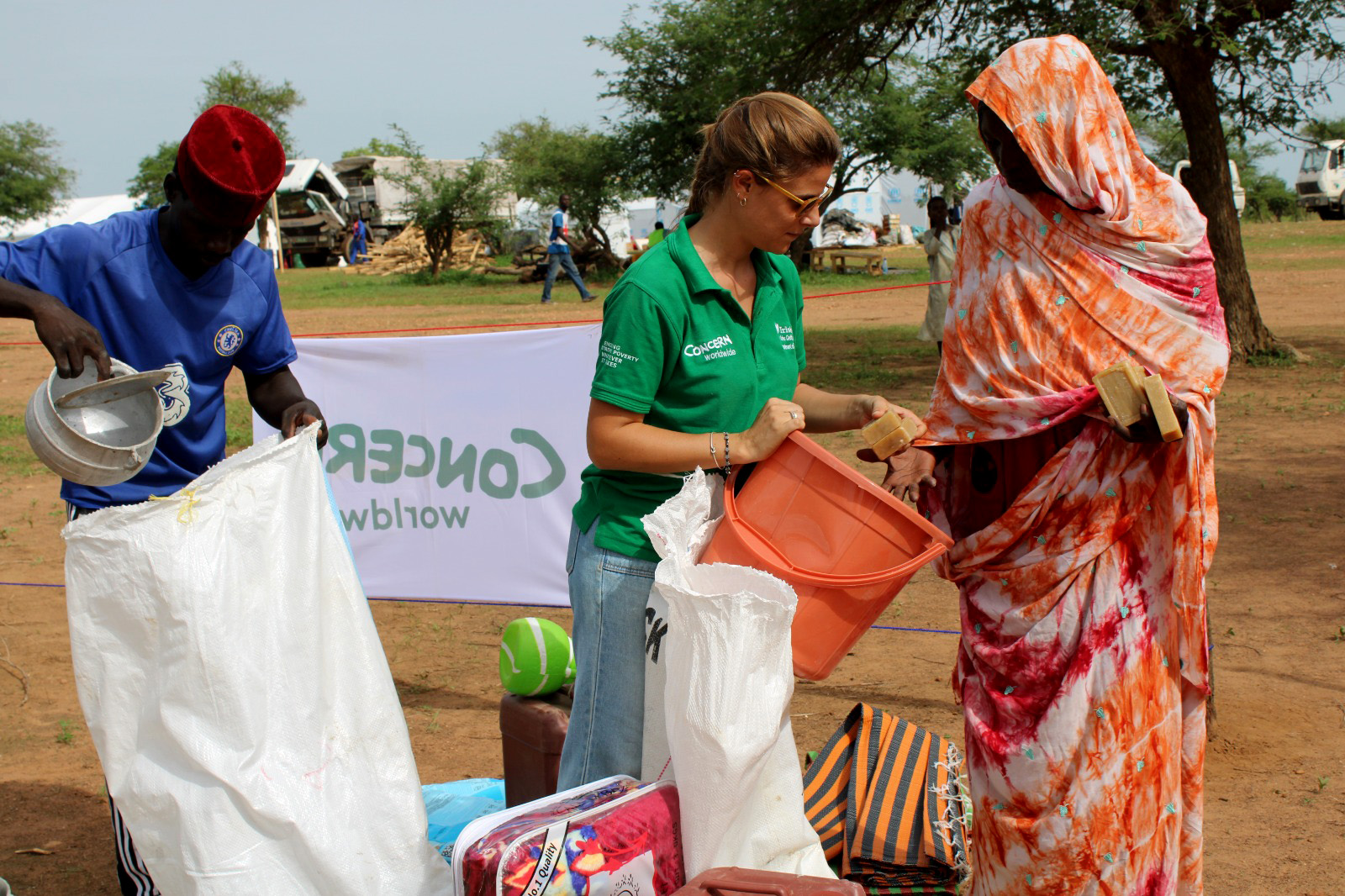
Urgent action needed to avert “humanitarian catastrophe” in Sudan
Concern Worldwide today urged the warring parties and the international community to play their part to help avert a humanitarian catastrophe in Sudan.
The warring parties must, as a matter of urgency, call a ceasefire to enable negotiations to take place as protection for humanitarians and supplies of aid, and also protection for civilians is needed.
“We need urgent action to ease the suffering of millions of Sudanese people and prevent further deaths,” Concern’s Country Director in Sudan, A.K. M Musha said, as the country marked the 100th day of the conflict.
“It is no exaggeration to say we are facing a humanitarian catastrophe – the entire country is suffering and is affected. Over 3.3 million have fled their homes for safety. People are still on the move and the fighting is continuing. Everyone in Sudan is facing uncertainty, the areas where people can be sure they will be safe are very limited. Nobody knows how this will pan out or where it is heading to.”
Currently more than half Sudan’s population – 24.7 million people – need humanitarian assistance. Some 2.6 million have fled their homes but remain in Sudan. An additional 757,000 have fled to neighboring countries.
The banks and markets are not functioning properly. Humanitarian organizations are facing barriers to providing assistance to people in need. “Humanitarian responders need security in order to work, we need to be able to bring specialist staff into the country quickly, and we need to be able to move supplies. Currently the roads are not safe to enable us move supplies from Port Sudan across the country to Darfur – a journey of over 1,300 miles,” said Mr. Musha.
“Given the scale of the suffering in Sudan, humanitarian organizations are struggling to provide the support that’s needed,” he said. “We are doing our best and our staff are risking their lives, but it’s not enough. We need humanitarian passes, and we need to remove the barriers which are hindering our work. If this is not done people who are already suffering will continue to suffer.”
The complexity and scale of the conflict makes it one of the worst humanitarian situations seen in decades.
“People are being attacked, particularly in the Darfur region,” he said. “It’s a different form of violence, not just violence you see between warring parties, but violence that has an ethnic dimension.”
The international community must ensure that adequate resources are provided to meet the needs of Sudanese people impacted by the conflict. The 2023 Sudan Regional Refugee Response plan is seeking $USD 2.6 billion but to date has secured just $588m – a shortfall of over $2 billion.
With many Sudanese people crossing into neighboring Chad and South Sudan – among the most vulnerable countries in the world – the international community must also provide the necessary funding to support them.
Despite the fighting, Concern’s work has continued in Sudan. “About half of health and nutrition facilities we support are continuing to operate in South Kordofan and West Kordofan and Jebel Moon and Kulbus localities in West Darfur” he said. “We had pre-positioned supplies in warehouses which were not looted. But supplies – especially medical supplies – are becoming quickly exhausted.”
Concern teams in neighboring Chad and South Sudan are also working to assist thousands of Sudanese families crossing.
In Chad, 280,000 have already crossed the border and thousands more are expected in the coming weeks. Concern is operating a mobile health and nutrition clinic in the area where people are crossing. In recent weeks it has treated over 1,100 adults and over 450 malnourished children. Staff are also distributing essential non-food items and shelter materials.
In South Sudan, over 181,000 people have crossed in the last three months. Concern is providing health and nutrition services, shelter materials and other non-food items.
Connect With Us
If you would like to speak to a member of our team about any aspect of our work, please get in touch with us using the details below.
- Contact Candance

Candance Patel-Taylor
Vice President of Communications
